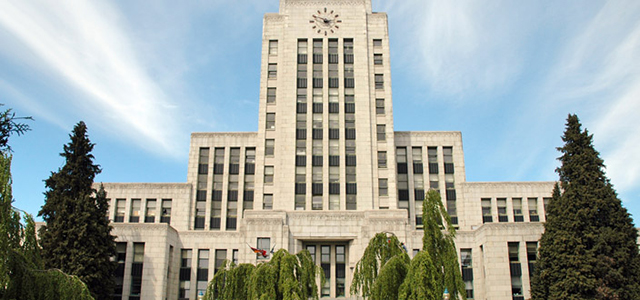
 Statement of Apology related to Gordon Goichi Nakayama Sexual Abuse and the Joy Kogawa House
Statement of Apology related to Gordon Goichi Nakayama Sexual Abuse and the Joy Kogawa House
Content Warning: The following statement includes references to child sexual abuse. Links to support resources are included below.
Today, the City Manager, Paul Mochrie shared the following statement of apology on behalf of the staff of the City of Vancouver:
“The City of Vancouver has been the title holder of the Joy Kogawa House External website, opens in new tab since 2016, when ownership of the house was transferred from the Land Conservancy of BC.
In July 2022, City staff put forward a report for Public Hearing recommending Council approve a Heritage Revitalization Agreement and Development Permit for the Joy Kogawa house. The aim was to support its long-term preservation and implement necessary safety and accessibility upgrades.
City staff withdrew the report prior to the public hearing following advocacy from the Japanese Canadian community and paused the heritage designation process. It became evident that the house, while celebrating Joy Kogawa’s literary contributions, also represents a painful reminder of the sexual abuse perpetrated by her father and previous owner, former Anglican Priest Gordon Goichi Nakayama External website, opens in new tab. His admission of guilt in 1994 is now widely acknowledged.
The City was unaware of Gordon Goichi Nakayama’s abuse when it purchased the property in 2016. Had this been known, City staff would have endeavoured to address it much earlier.
Joy Kogawa’s legacy as a poet, novelist, and activist stands distinct from her father’s reprehensible actions. Nevertheless, City staff acknowledge that by not including Gordon Goichi Nakayama’s sexual abuse as part of the house’s history in the 2022 Council report, City staff inadvertently contributed to erasing the experiences of many survivors, and their families, predominantly from the Japanese Canadian community.
For this omission, City staff extend a heartfelt apology to the survivors of Gordon Goichi Nakayama’s abuse, and their families. City staff recognize this was a missed opportunity to publicly acknowledge the lasting harm caused by Gordon Goichi Nakayama as part of the full truth and history of the Joy Kogawa House.
While the City remains committed to facilitating cultural use of the House and permitting necessary renovations, staff will continue to pause the heritage designation process. This pause aims to prioritize restoration efforts in collaboration with the survivor community in a trauma-informed way.
City staff are committed to including the history of Gordon Goichi Nakayama’s abuse in all future reports and documentation concerning the house. City staff also commit to ongoing, open dialogue with the Japanese Canadian community. For more information about the City’s work on the Joy Kogawa House, please refer to our Q&A document PDF file (64 KB).”
Historical Background of the House
Acclaimed author Joy Kogawa is best known for her novel Obasan (1981), inspired by her family’s story of the internment of Japanese Canadians during World War II. She has worked extensively to educate the public about this dark period in Canadian history and the need for government redress.
In 1942, six-year-old Joy and her family were forcibly displaced from their home (now known as the Joy Kogawa House) under the War Measures Act. The Canadian Government authorized the confiscation of property from nearly 22,000 Canadians of Japanese descent, leaving them dispossessed.
From 2005 to 2006, Ms. Kogawa lent her support to a community campaign that saved her childhood home from demolition. To preserve it as a cultural and historic asset, the City purchased the property in 2016, when the previous owner – The Land Conservancy of BC – was undergoing bankruptcy proceedings. Currently, the house is managed by the non-profit organization Historic Joy Kogawa House Society. Among its purposes, the Society operates as a place of community-based literary creation and connection and aims to preserve the home as a centre of cultural heritage, healing and reconciliation.
Resources
Sexual Assault Support Resources:
Healing Fund for Japanese Canadians External website, opens in new tab
- For those directly and indirectly harmed by the clergy sexual abuse of the former Anglican Priest Gordon Goichi Nakayama.
Email: [email protected]
Salal Sexual Violence Support Centre External website, opens in new tab
- 24 Hour Crisis Line: 604-255-6344
- Workshops and Resources: 604-255-6228
Japanese Canadian Cultural Redress Support Resources:
- For Japanese Canadians displaced and mistreated by the BC Government during World War II. Outreach works in BC and the Territories: https://jcwellness.org/outreachworkers/bcteam/ External website, opens in new tab